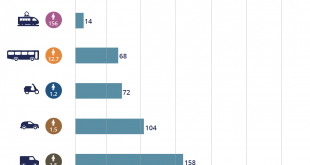Risks to crashing on roads analysed by bicycle users in a TCC workshop

Prof.Thongchai Panswad, TCC President, opened the workshop.
Road safety is a major issue of concern not only for bicycle users, but also for all road users. “Safety Today Safety Tomorrow” was the theme of Thailand Cycling Club (TCC)’s 3rd Thailand Bike and Walk Forum just convened on 3rd April, 2015.
On May 16, 2015, TCC therefore organized a workshop “Analysis of Risks on Main Roads in the Eyes of Bicycle Users” in a hotel in Bangkok. The workshop was participated by 41 persons; apart from bicycle users, there were officials from related government agencies, such as the Department of Land Transport. The workshop attracted some media agencies and was reported in a night news programme of a popular TV Channel 3 on the same day.
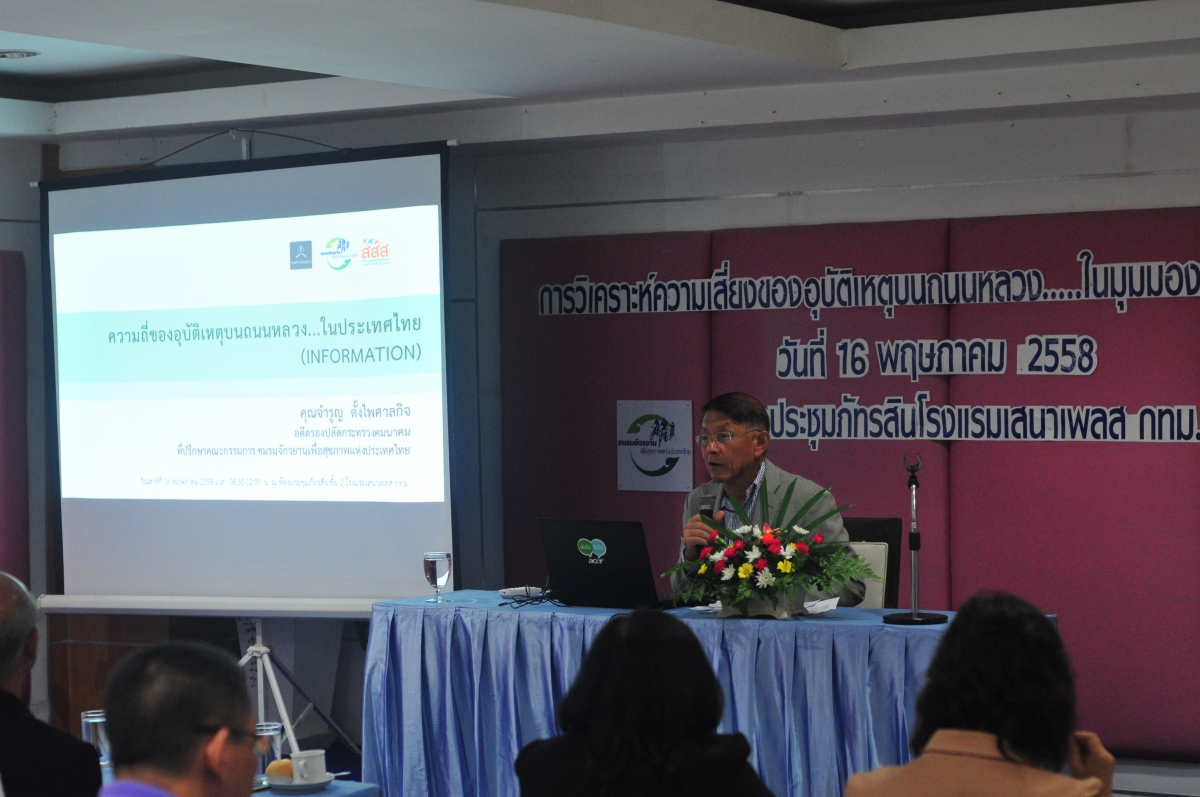
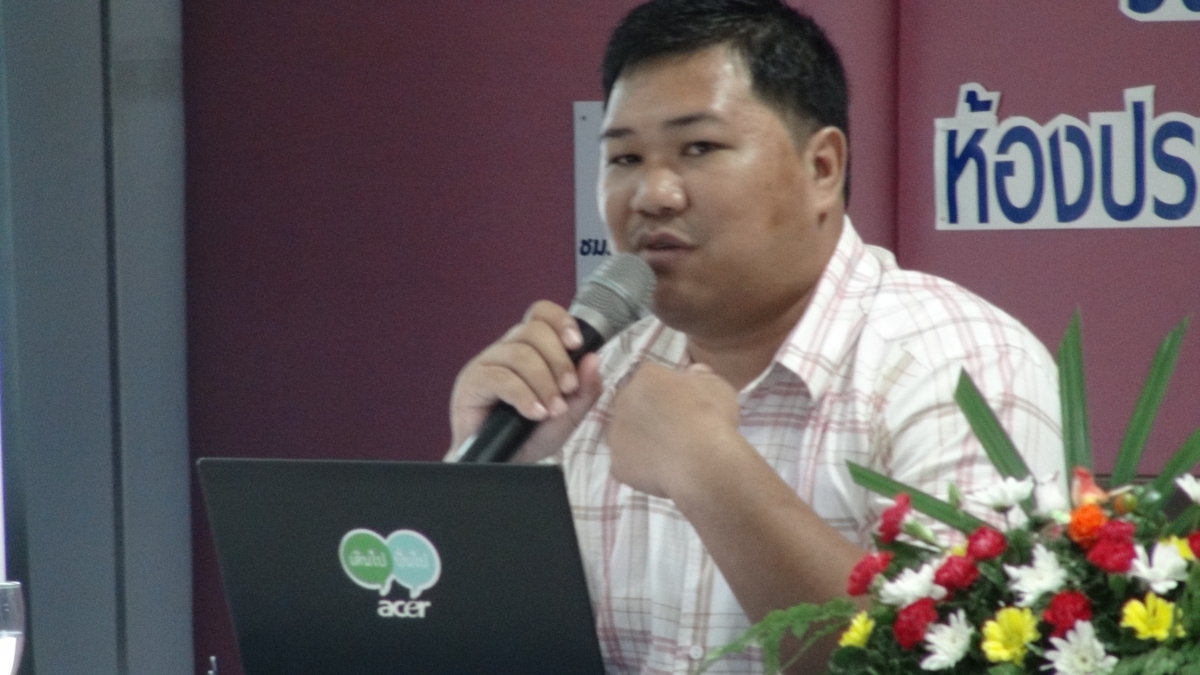
Mr. Jamroon Tangpaisalkit, a TCC Advisor Mr.Kittisark Intaravisit, TCC Committee Member
The workshop began with information about crashing (or accidents) on main roads in Thailand given by Mr. Jamroon Tangpaisalkit, a TCC Advisor, followed with a lecture on the Risk Theory by Mr.Kittisark Intaravisit, TCC Committee Member. Then workshop participants were divided into small groups to analyse risks faced by bicycle users. Conclusions of the workshop came out in form of recommendations to related government agencies to consider taking actions as follows:
1. Car crashing against pedestrians or bicycle users on road shoulders occur because drivers who want to overtake a slow vehicle cannot do it properly on the right, being blocked by another slow-moving vehicle on the right lane, and thus do it on the left on road shoulders. A solution is to set a minimum speed for vehicles using the right lane and strictly implement this rule.
2. All related government agencies, including Bangkok Metropolitan Administration, Department of Highways, Department of Rural Roads, municipalities, Ministry of Public Health should convene meetings to develop a standardized data collection system for convenience and accuracy in data compilation and analysis.
3. The above-mentioned agencies should design their crashing database system to rate death and injuries against travel distance (in kilometer) or days, which is more accurate and correct than rating against number of population.
4. The above-mentioned agencies should set up a self-reporting system as crashing incidents may not be reported or appear in the mass media if they are minor/not serious ones, resulting in statistics showing smaller number of incidents than realities. With self-reporting system, data would be more correct, more accurate, for analysis and better development of responding measures.
5. The above-mentioned agencies should produce maps showing minor highways or rural roads that are connected to become a national network of roads recommended for cycling. This national network may be called ‘Thai Velo’, similar to the Euro Velo in Europe, which is helping promote not only cycling but also ecotourism in local communities.
6. Thailand should become a state party to the International Road Assessment Program (iRAP) together with other countries that have tools and management system for road safety.
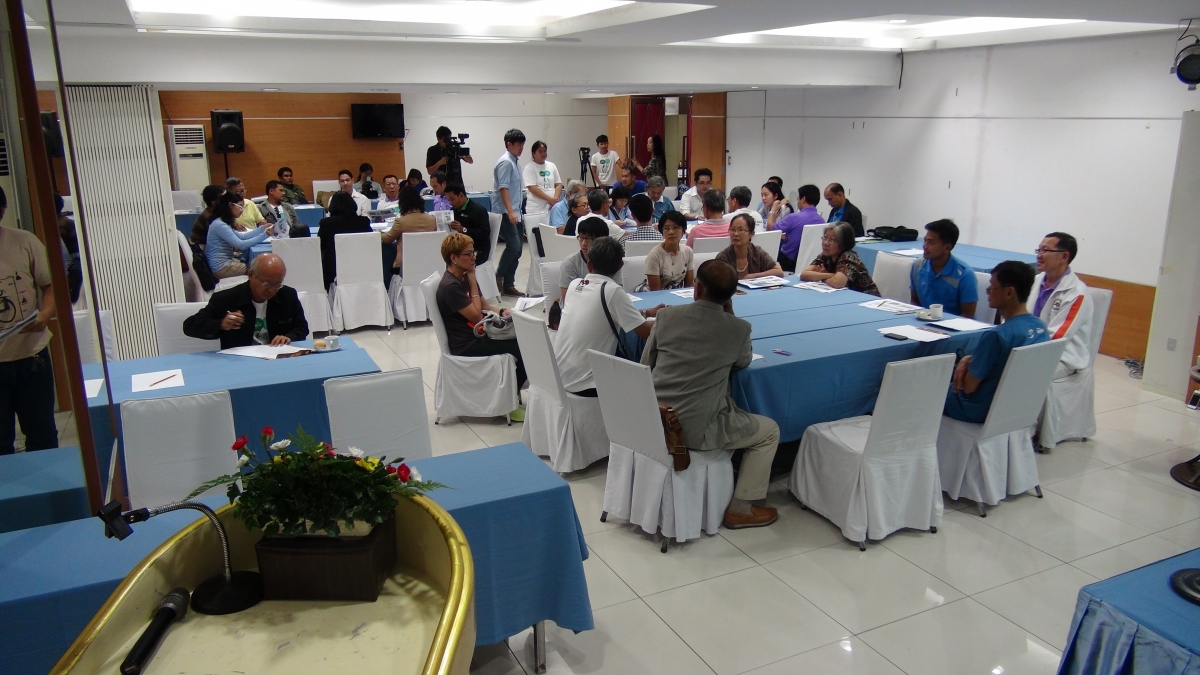
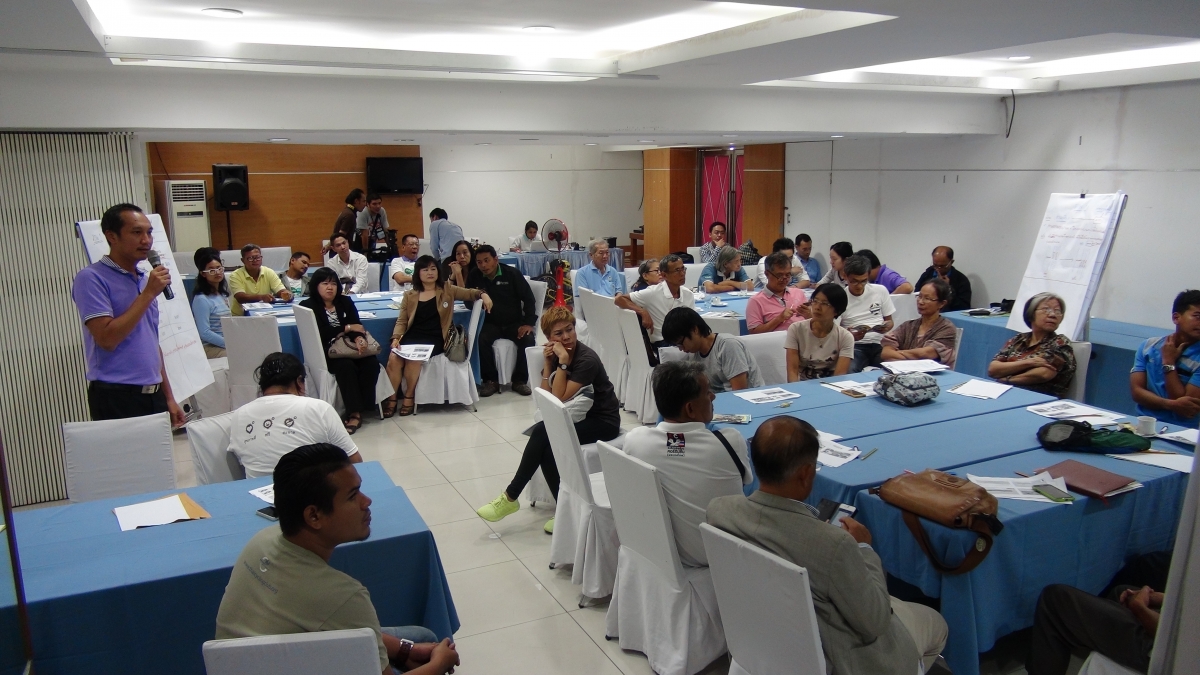
Atmosphere of thework shop
Reported by Gawin Chutima, TCC Board Member
____________________________________________________________________________________________
Thailand Cycling Club is an Associate Member of the European Cyclists’ Federation (ECF), the first in Asia, and a Founding Member of the World Cycling Alliance (WCA)
 ชมรมจักรยานเพื่อสุขภาพแห่งประเทศไทย ชมรมจักรยานเพื่อสุขภาพแห่งประเทศไทย
ชมรมจักรยานเพื่อสุขภาพแห่งประเทศไทย ชมรมจักรยานเพื่อสุขภาพแห่งประเทศไทย
